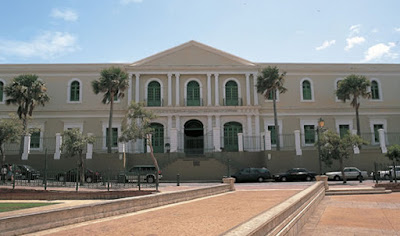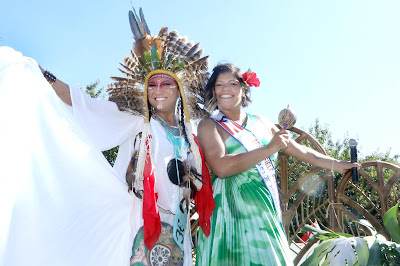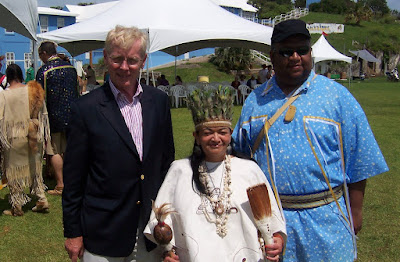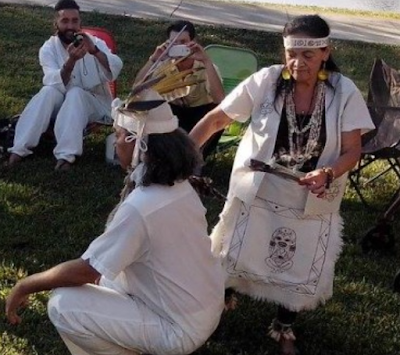 |
| The Institute of Puerto Rican Culture, or ICP, San Juan, Borikén (Puerto Rico) |
By Nichole Bodin
As the Institute of Puerto Rican Culture (ICP) slowly disappears as an artifact of a new administrative debt-ridden speculative revenue plan, few find hope for fixing Caribbean history. An alternative could be within the horizon to positively create a better future for the few remaining legitimized Caribbean institutions along with the unborn cultural foundations and academies of Puerto Rico. Beautiful collections and strong archaeological evidence of the Island’s cultural fusion will lose its photos, postcards, petroglyphs, ceramics, songs, poems, and more, while the impending duplicity of the patrimony’s mission fails once again to conserve and preserve Puerto Rico’s culture.
The ICP is currently located at the old colonial Spanish Welfare House in Old San Juan, and soon it will become a hotel. The Hotel San Felipe is expected to be rehabilitated with an estimated investment of $20 million. The concept is a boutique Hotel development that is proposed through the politicized conservation of the ICP’s historical structure while adding a restaurant, a bar, two luxury spas, and different hospitality and service areas.
After an unjustifiable transaction was endorsed on December 27, 2016, (three days after the administration of past Governor Alejandro García Padilla ended) a lease agreement was signed by Arnold Benus under the company Gran Hotel San Felipe del Morro, and then Director of Land Administration- Luis Rivero Cubano. This agreement states that a rent of $5,000 per month will be paid during the hotel’s construction process, $85,000 annual fee the first three years of operation, and $100,000 annual the rest. After 10 years, the rent will be increased 15% of the base or 3.5% of the profit of the hotel operation every five years, while after the fourth year of rent, they will only pay 5% of the net earnings after taxes.
In order to transform the historic Asilo de Beneficencia building, the headquarters of the Institute of Puerto Rican Culture, the Gran Hotel San Felipe del Morro development company must have the approval of the Puerto Rico National Park Company, as the use of the structure is still intended for a public purpose from its transfer to the island by the United States Government.
The biggest concern is how the $10 million assigned for or ICP’s headquarters recovery funds from the Federal Emergency Management Agency (FEMA) after Hurricane Maria are going to be used, and how this audacious orchestration will end up in the hands of the already overly indulged private sector. El Castillo San Felipe del Morro is located on the northwestern point of the islet of Old San Juan, steps from the ICP, and has been recognized as a UNESCO World Heritage Site by the United Nations since 1983. With at least 2 million visitors yearly, the fortification is one of Puerto Rico’s leading tourist attraction, as well as the hotel’s expectations.
But for now, San Juan’s current corrupt political leaders and government administrators have clearly coordinated again some last-minute oppressive and vicious acts to an already injured nation. With no real government functioning under Puerto Rican colonialism regime now, and with the possible dislocation of the ICP, Old San Juan is becoming a tourist attraction destined to respond to a culture of Disney characters dressed up as “Pirates of the Caribbean” while offering secret and private tour guides. This continuous cultural disinformation and distorted social image do not represent the Institute’s mission of years of work and study for the protection of the legacy and preservation of the Island’s National Treasures and historic patrimony. Old San Juan is already crammed with fancy hotels and numerous Airbnb’s functioning from historic buildings, and some already need restorations from the legal or illegal activities that helped acquire a level of wealth that allowed these businesses to live extravagantly within the National Historic Landmark District of Viejo San Juan.
By not recognizing these cultural urgencies, a sense of annihilation creates a continuous and distasteful cultural and educational slaughter that noticeably encourages an interminable loss of historic knowledge from the Island’s ancestral contrast in history, its memorable cultural advances and tribal technology legacy.
Every day, archaeological sites around the world continue to be destroyed through wars and political conflicts. In 1990, NAGPRA (Native American Graves Protection and Repatriation Act) declared that museums require to transfer human remains and any associated burial objects to culturally affiliated tribes. Nevertheless, Puerto Rico’s tourism process and absurd land exploitations through infrastructure development have always found itself in the middle of these juridical and patrimonial debates.
It has been speculated that while Roosevelt Roads Naval Station operated in Ceiba, P.R. (1941-2004), the U.S. Armed Forces took at least 70,000 archaeological artifacts that were probably dated around 600 a.d., as these artifacts could be returned if an exemplary and modern depositary that operates within federally established norms is finally built in Puerto Rico.
While President Donald Trump’s impeachment discrepancies keep proceeding, the political and economic relationship that Puerto Rico has with the United States will create a bigger and even more longstanding cultural hold-up, with more long-lasting identity damages. The Island’s everlasting jurisdictional oblivion and ethnic miscegenation have definitely created a more than ever alienated community.
Indigenous movements around the world reflect their ‘cultural distinctiveness’, an important part of the post-colonial struggles for ethnic identity. The role of Latin American and Caribbean's social science has deconstructed Indians not as aboriginal, but as people that have been mediated by colonialism for hundreds of years. These reconstructions of mythological traditions, cultural identity, and social representations of traumatic experience of domination and colonialism have successfully deconstructed the superiority version of history and power. Borikén's (Puerto Rico's) Taíno and other self-identified Indigenous Peoples consists mostly of the genetically mestizo population of mixed European and Amerindian, while the ‘one-drop’ ruled principle of "invisible blackness" has loudly created a long history of violent racial interaction, slavery, and social segregation.
A sense of urgency arises quickly when the most important cultural institution in a country is going to become a tourist hotel instead of a prestigious archaeological repository. Just as political corruption hits around the global news nowadays, Puerto Ricans question now the same interrogation since their first revolution: when is PR’s history going to be fixed?
Museums and cultural activities are meant to promote unity and diplomacy in all societies by using their resources to ensure a better understanding of worldwide traditions with full knowledge of historic appreciation that will engender between peoples and nations. The future of the ICP’s artifacts is in danger, as new traditions develop quickly with a predilection aimed to naively annihilate the culture against tourism development.
Although early museums were elitist and the general public was excluded, today’s museums and repositories have the mission to become agents of change and development that can foster peace, with strong ideals of democracy and transparency in their governance in order to include every group in the society. With the memory and recognition of the history of a culture, its different sectors, ages and how these community interests have created a way of life, the portrayal of customs and artistic manifestations will sustain, defend and preserve all forms of socio-cultural identities of the Circum-Caribbean Indio Old and New World experience.
Nichole Bodin is a recent graduate from the Caribbean Archaeology Master's Program from the Center of Advanced Studies of Puerto Rico and the Caribbean. Along with her B.A. in Humanities with a minor in fine art photography and a A.D in Audiovisual Communication, she has worked as a community and union organizer and has experience as a grassroots newspaper community journalist. Her shared observations on Puerto Rico's National Patrimony is of interest to our community of thinkers.































